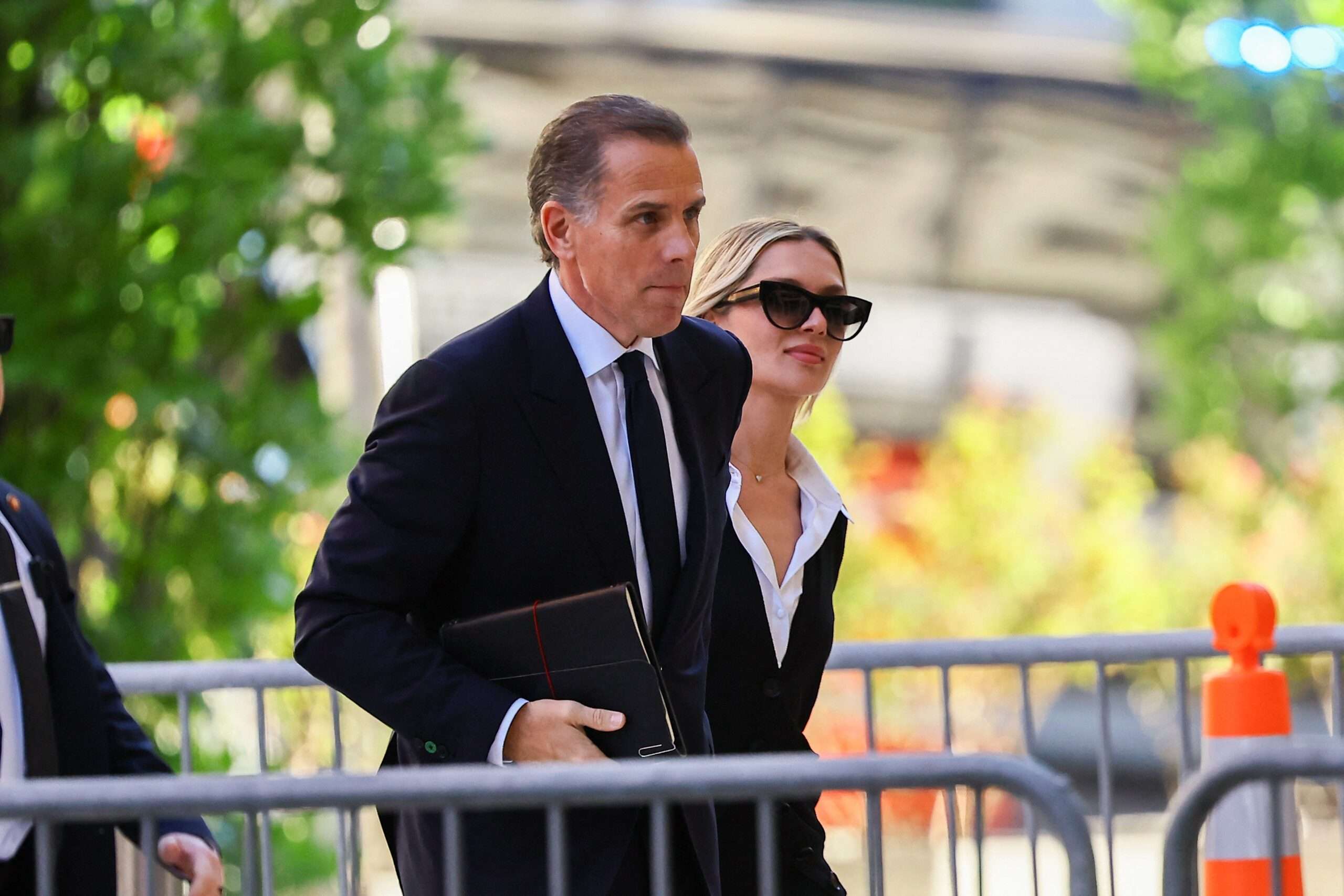President Joe Biden’s reasoning behind the pardon granted to his son is criticized for being dishonest, hypocritical, and evasive in multiple ways. Despite previous promises not to interfere in Hunter Biden’s federal gun and tax cases, President Biden ultimately did so anyway. His justification that Hunter was “singled out” for political reasons is compared to Donald Trump’s complaints about civil and criminal cases against him being invalid for similar reasons.
This action undermines President Biden’s defense of the Justice Department’s independence, which he and other Democrats have emphasized as crucial protection against self-interested politicians like Trump. The President’s defense also ignores his support for gun laws that his son violated, laws that he has argued are essential for public safety.
Hunter Biden was convicted of firearm felonies and tax offenses, to which he pleaded guilty. President Biden claims that federal prosecutors treated Hunter more severely due to his relation to the President. The President justifies the pardon by stating that those who pay back taxes due to addiction are typically given non-criminal resolutions.
President Biden argues that the gun case against Hunter was unusual and that the charges were escalated after negotiations failed. The potential penalties Hunter faced exemplify the power prosecutors have to coerce guilty pleas.
President Biden contends that Republican legislators instigated the charges against Hunter, but the decision to prosecute was made by David C. Weiss, acting U.S. Attorney for Delaware during the Trump administration. Weiss, appointed as a special counsel, oversaw Hunter’s cases and allowed him to avoid incarceration, contradicting claims of political favoritism.
President Biden’s view that the plea deal would have been a fair resolution is challenged by objections from U.S. District Judge Maryellen Noreika. The President’s defense of the pardon is criticized for overlooking these objections. Noreika had concerns about the lack of clarity surrounding Hunter Biden’s immunity from future prosecution, the interaction between the plea deal and diversion agreement, and the unusual role she would have to play in determining if Biden had fulfilled the terms of the agreement. The president’s perspective also overlooks the government’s willingness to negotiate a new plea deal, albeit one that Biden found unacceptable.
It is possible that Weiss took the criticism of the initial plea deal to heart and was determined to demonstrate that Hunter Biden was not receiving special treatment. However, the decision to prosecute Biden to the fullest extent was not unusual in cases where federal defendants opt for a trial. This issue of disproportionate punishment is not unique to Hunter Biden.
Similarly, the inconsistent enforcement of gun laws, as highlighted in Biden’s case, is a widespread problem. Millions of American gun owners who are illegal drug users technically commit the same felony as Biden, yet few face prosecution. Biden’s public admission of drug use and the circumstances surrounding his firearm possession made him an unfortunate target for prosecution.
The case of Patrick Darnell Daniels Jr., who received a lengthy prison sentence for a similar violation, illustrates the disparity in the application of these laws. Biden’s lawyers referenced a relevant court decision in arguing for the dismissal of his gun charges, questioning the constitutionality of the ban on gun possession by drug users.
Weiss defended the gun charges by asserting that Congress’s prohibition on firearm possession by drug users aligns with historical traditions and the Second Amendment. President Biden supported Weiss in this constitutional debate, even though it pitted him against his own son. The Biden administration has consistently upheld Section 922(g)(3) and imposed harsh penalties on individuals like Hunter Biden who violate it.
Despite President Biden’s arguments against his son facing prison time for illegally obtaining a firearm, he signed legislation increasing penalties for such offenses. The discrepancy in treatment between high-profile individuals like Hunter Biden and lesser-known individuals like Daniels raises questions about the fairness of the justice system.
The contrast in outcomes for individuals like Hunter Biden and Patrick Darnell Daniels Jr. reflects the broader issue of unequal enforcement of laws and the impact of such disparities on marginalized communities. President Biden’s stance on these matters seems contradictory given his previous criticisms of unjust enforcement practices.
In summary, the handling of Hunter Biden’s case raises concerns about fairness, consistency, and the broader implications of selective law enforcement. The disparities in treatment between individuals of different backgrounds underscore the need for a more equitable and transparent legal system. Please rewrite the following sentence:
Original: “The dog ran quickly down the street after the ball.”
Rewritten: “The ball was chased rapidly by the dog as it raced down the street.”
Source link





